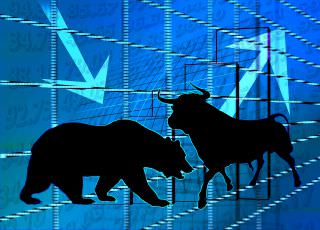The CFD broker role in the three CFD provider business models
CFD broker role importance for most investors and traders, cannot be overemphasized in successfully carrying out trades. But when it comes to contracts for difference (CFD), the CFD broker may or may not be required. Their necessity will depend on the type of business model used by the CFD provider. Individuals interested in CFD trades must first know the provider’s business model and how it affects their trading strategies.
 The business model used by the CFD provider pertains to the manner in which it structures and prices these CFDs. CFD providers usually have three business models. They are the market maker, direct market access, and exchange traded. In all three, the CFD provider determines the type of underlying assets. This includes things like the currency and shares, on which the CFDs are traded as well as the terms and conditions of the client agreement.
The business model used by the CFD provider pertains to the manner in which it structures and prices these CFDs. CFD providers usually have three business models. They are the market maker, direct market access, and exchange traded. In all three, the CFD provider determines the type of underlying assets. This includes things like the currency and shares, on which the CFDs are traded as well as the terms and conditions of the client agreement.
CFD broker not necessary
The market maker and direct market access business models are over-the-counter models where the services of a CFD broker are unnecessary. Keep in mind that there are differences between the two business models, such as:
• In the market maker model, the CFD provider will come up with its own price for the underlying asset. Market makers can quote their own prices. This may or may not substantially differ with the market price of the underlying asset.
• In the direct market access model, the CFD provider will place the client’s order into the market for the underlying asset. The price paid by the client will be determined by the underlying asset’s market.
For both models, the CFD providers typically do not carry any risks from the trades. You, the client, will only be able to trade in CFDs for an underlying asset when it has sufficient volume.
Broker necessary
In the exchange-traded model, the professional services of a broker will be necessary to successfully carry out the trades. You should always check that your chosen broker is authorized by the provider to protect your financial interests, not to mention that you can get useful tips and tricks from your broker.
In Australia, exchange-traded CFDs should be listed on the ASX and traded via brokers authorized by the ASX in these trades. The ASX also standardizes the CFD trades terms and conditions, thus, reducing the market risks associated with trading in the underlying assets. The CFD market is obviously distinct and separate from the market for the underlying asset on which the CFDs are traded, a fact that your broker will emphasize in case you have any concerns about it.
In the exchange-traded business model, the prices for the CFDs are determined by the trading activity in the CFD market itself, not the market for the underlying asset. Instead of being price takers, as is the case with the market maker and direct market access models, you and your CFD broker can be price makers. You can ask your broker to make the price, not just take whatever price is on the board.
Related articles
Trading signal service for you!
Understanding a cfd
A quick overview of broker and their services